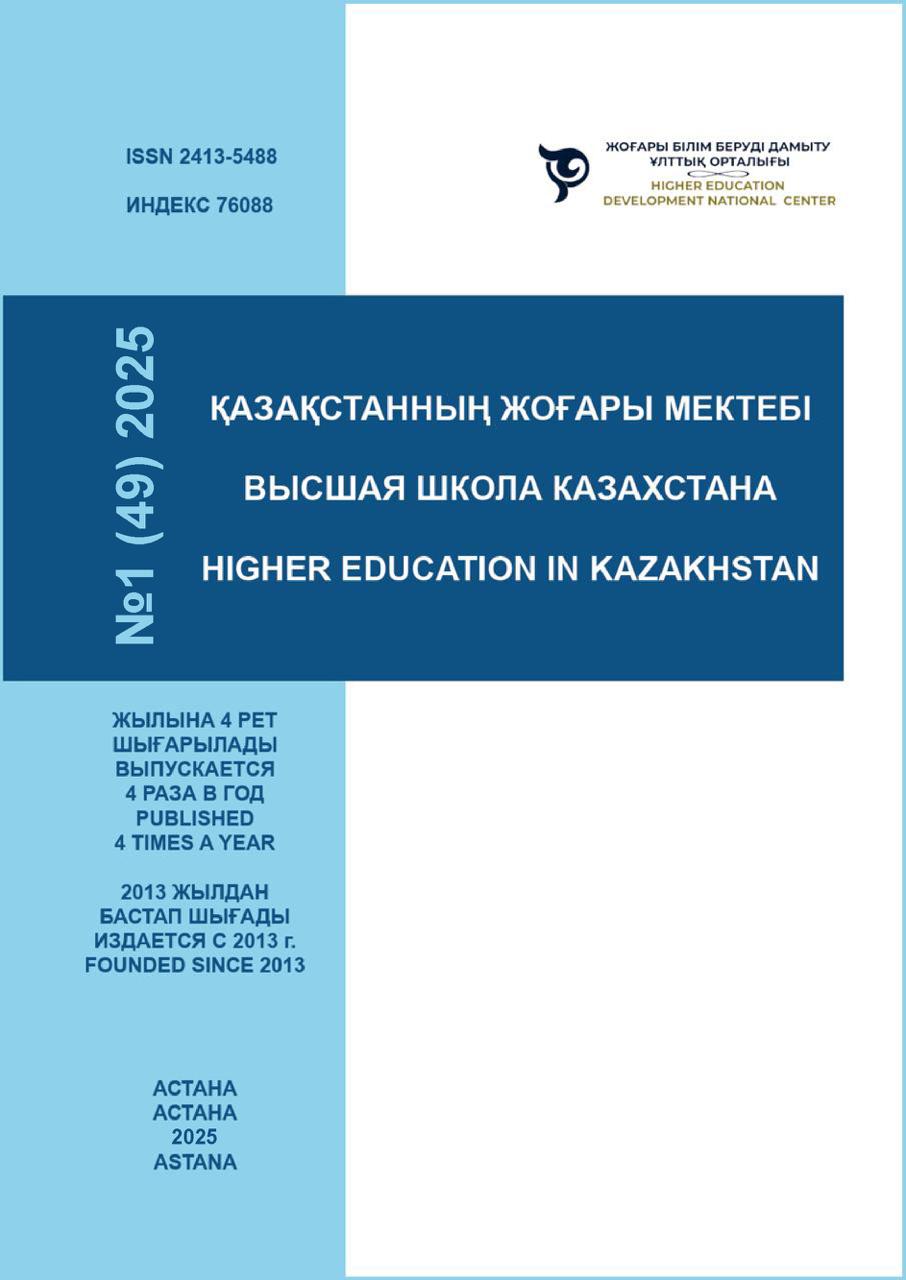LEARNING MOTIVATION AS AN INDICATOR AND CONDITION OF LEARNERS' PSYCHOLOGICAL WELL-BEING
DOI:
https://doi.org/10.59787/2413-5488-2025-49-1-105-114Аннотация
The article presents the relationship between learning motivation and psychological well-being of learners. Despite the wide range of works devoted to the study of learning motivation and psychological well-being of learners, the mechanisms of their mutual influence in the educational environment are not fully understood. In particular, comprehensive models of pedagogical design that take into account the two-way relationship of these phenomena have not been sufficiently developed. Learning motivation is analyzed by authors as an indicator and condition of learners' psychological well-being in the context of various theories of psychological well-being, including self-determination theory, positive psychology, humanistic theory, expectancy and value theories, and others. Unlike most existing works, the authors emphasize the importance of considering the two-way relationship between learning motivation and learners' psychological well-being in the pedagogical design of educational environments and propose practice-oriented principles of pedagogical design of educational environment aimed at creating conditions that stimulate intrinsic motivation, supporting learning activity and ensuring psychological comfort of learning. These include the individualization and support autonomy, relevance of learning outcomes, positive interaction, integration of engagement technologies into learning, ethical assessment and feedback, development of self-regulation skills and emotional stability.
Библиографические ссылки
Bandura, A. (1990). Mechanisms of moral disengagement. In W. Reich (Ed.), Origins of terrorism: Psychologies, ideologies, theologies, states of mind (pp. 161-191). Cambridge: Cambridge University Press.
Csikszentmihalyi, M. (1990). Flow: The psychology of optimal experience. – Harper & Row. URL: https://www.researchgate.net/publication/224927532_Flow_The_Psychology_of_Optimal_Experience (date of application: 22.01.2025).
Eccles, J. S. & Wigfield, A. (2002). Motivational beliefs, values, and goals. Annual Review of Psychology, 53(1), 109–132. https://doi.org/10.1146/annurev.psych.53.100901.135153
Egorenko, T. A. (2019). Motivation of learning as an aspect of self-determination of personality at the stage of its pre-professional development. Modern Foreign Psychology, 8(2), 49-55. https://doi.org/10.17759/jmfp.2019080205
Festinger, L. (1957). A Theory of Cognitive Dissonance. – Redwood City: Stanford University Press, 291 p. https://doi.org/10.1515/9781503620766
Gagne, R. M., Wager, W. W., Golas, K. C. & Keller, J. M. (2005). Principles of Instructional Design. – Wadsworth/Thomson Learning. https://doi.org/10.1002/pfi.4140440211
Gordeeva, T. O. (2014). Basic types of activity motivation: a need-based model. Vestnik of Moscow University. Series 14. Psychology, 3, 63-78. URL: https://msupsyj.ru/articles/detail.php?article=5179&ysclid=m6q2905dnz866274859 (date of application: 12.01.2025).
Grassinger, R., Landberg, M., Määttä, S., Vasalampi K. & Bieg S. (2024). Interplay of intrinsic motivation and well-being at school. Motivation and Emotion, 48, 147–154 https://doi.org/10.1007/s11031-024-10057-2
Heider, F. (1958). The Psychology of Interpersonal Relations. New York: Wiley.
Keller, J. M. (2010). Motivational Design for Learning and Performance: The ARCS Model Approach. – Springer Science & Business Media. http://dx.doi.org/10.1007/978-1-4419-1250-3
Kotera, Y., Taylor, E., Fido, D., Williams D. & Tsuda-McCaie F. (2023). Motivation of UK graduate learners in education: self-compassion moderates pathway from extrinsic motivation to intrinsic motivation. Current Psychology, 42, 10163–10176 https://doi.org/10.1007/s12144-021-02301-6
Kulagina, I. Y. & Kravtsova, M. A. (2022). The relationship of learning motivation and psychological well-being in the younger school age. Psychological and Pedagogical Research, 14(4), 36-51. https://doi.org/10.17759/psyedu.2022140403
Nikitskaya, M. G. & Tolstykh, N. N. (2018). Foreign studies of learning motivation: the 21st century. Modern Foreign Psychology, 7(2), 100-113. https://doi.org/10.17759/jmfp.2018070210
Ryan, R. M. & Deci, E. L. (2000). Self-determination theory and the facilitation of intrinsic motivation, social development, and well-being. American Psychologist, 55(1), 68-78. http://dx.doi.org/10.1037/0003-066X.55.1.68.
Seligman, M. E., Ernst, R. M., Gillham, J., Reivich, K. & Linkins, M. (2009). Positive education: Positive psychology and classroom interventions. Oxford Review of Education, 35(3), 293-311. https://doi.org/10.1080/03054980902934563
Tuseyev, M. U., Torybaeva, J. Z. & Sobkin, V. S. (2022). Psychological safety of educational environment as an important pedagogical problem. Vestnik Toraigyrov University. Pedagogical Series, 3, 349-358 https://doi.org/10.48081/3388
Vodyakha, S.A. (2014). Internal motivation as a predictor of psychological well-being of modern adolescents. Pedagogical Education, 4. URL: https://cyberleninka.ru/article/n/vnutrennyaya-motivatsiya-kak-prediktor-psihologicheskogo-blagopoluchiya-sovremennyh-podrostkov (date of application: 01.02.2025).
Weiner, B. (1974). Achievement motivation and attribution theory. Morristown, N.J.: General Learning Press.

Загрузки
Опубликован
Выпуск
Раздел
Лицензия
Copyright (c) 2025 Научно-аналитический журнал "Высшая школа Казахстана"

Это произведение доступно по лицензии Creative Commons «Attribution-NonCommercial» («Атрибуция — Некоммерческое использование») 4.0 Всемирная.













